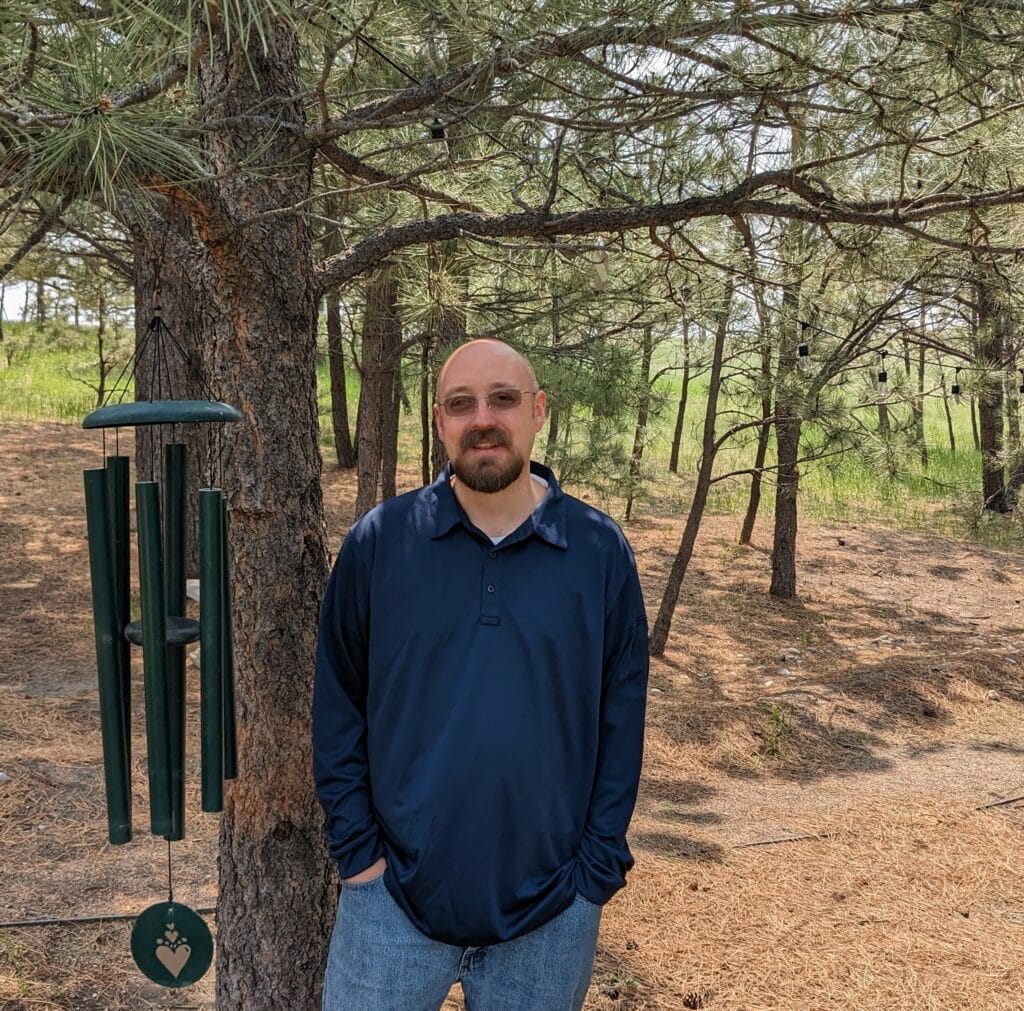DBT Therapy In Colorado
DBT Therapy in Colorado Springs, CO
Mental health conditions affect people in a variety of ways, and some problems are considered more easily dealt with than others. In some cases, a person struggles with substance abuse problems in addition to their mental health issues.
More several cases of mental health disorders might not respond to classic talk therapy. The person might decide that they need to try a different technique to help make improvements in their life. If they struggle with drug or alcohol addiction, they want to take steps to live a sober lifestyle.
For some dialectical behavior therapy (DBT) is a way of reshaping their behavior and creates a positive effect on their mental health.
Request a Confidential Callback
What Is DBT?
Dialectical behavior therapy (DBT) is a type of psychotherapy or talk therapy. It’s similar to and in the same family as cognitive behavioral therapy (CBT).
However, this therapy is geared toward the treatment of patients who have problems regulating their emotional responses or seem to feel emotions more intensely. It’s typically used to treat patients with personality disorders and more severe forms of mental health issues.
Some common disorders DBT is used to treat include:
- Borderline personality disorder
- Self-harm
- Suicidal ideations
- Eating disorders
- Substance abuse disorders
- Depression
- Anxiety
- Post-traumatic stress disorder (PTSD)
- And more!
Dialectical means to combine opposite ideas. For example, the goal of DBT therapy in Colorado might be for a patient to realize that they have a substance abuse disorder that leads to negative consequences while trying to identify new ways to deal with the emotions that lead to the substance abuse.
The therapy uses a variety of techniques to focus the patient and help them better control their emotion regulation. The therapy includes a mind and spirit approach to healing the patient.
This therapy draws on the beliefs of Zen Buddhists. It strives to help the patient focus on the here and now versus reliving past traumas. The therapy also starts from the point that some people are simply geared to be more emotional and intense in their reactions to everyday stressors.
Men's Treatment
Learn more about our substance abuse treatment program for men in Colorado and how we can help you find long-term healing from addiction.
Residential Inpatient
We offer supportive inpatient rehab and residential treatment at our beautiful home in the scenic small town of Elizabeth, Colorado.
Medication-Assisted
For individuals struggling with substance abuse and mental health (dual diagnosis) we offer comprehensive therapeutic modalities.
How Is DBT Used?
When a therapist decides to use DBT therapy in Colorado Springs, they’re attempting to get a patient to accept the things that they like least about themselves and react in new ways. DBT involves trying to relearn negative thought processes and finding new ways to react in certain situations.
There are several steps to use when using DBT therapy to overcome mental health issues. These steps include:
During this step, the patient is new to therapy and is experiencing severe symptoms. The goal here is to stabilize the patient. The focus is on the patient’s destructive behaviors and gaining some control over them, so the patient isn’t a danger to themselves. If drugs are an issue, this is the stage where the patient needs to stop using them.
With the patient stable, the therapist helps them explore their emotional pain and the traumatic experiences that created it. The goal is to face the trauma head-on.
In this step, the patient strives to find new ways of viewing their own trauma and to create happiness for themselves.
Although there are only a few steps, the patient will take as long as they need to navigate each one. In the end, the patient will continue to attend therapy as support for their new patterns of dealing with emotions and anxieties.
What to Expect in Addiction Recovery
While the journey to a sober lifestyle is different for everyone, there are some things that each person struggling with drug or alcohol addiction can expect. Of course, the first and most important step is to stop using their drug of choice or drinking alcohol.
Depending on the substance abused, there can be physical symptoms of withdrawal. Some symptoms are mild and easily managed, while others can require the patient to take part in a rehab program for their overall physical health.
Once the patient is stable and no longer under the influence of drugs and alcohol, the person and their therapist work on ways of helping the person better control their emotions and the behaviors that lead to the drug abuse. In some cases, there are underlying mental health disorders.
If there is a co-occurring mental health disorder, both conditions must be worked on for the patient to be successful. There are a variety of therapies that the therapist might suggest, including DBT therapy in Colorado.

Don't Let Anything Stop You From Getting Help.
We work with most major commercial insurance plans which can help cover up to 100% of the costs associated with treatment.
Benefits of DBT Therapy
Therapists have many tools and possible therapies they can use to help a patient overcome their mental health issues. Some have a preferred method of treatment, and patients seek them out for specific therapy.
DBT has a variety of benefits that might lead a therapist to choose to help the patient work on their issues. Here are a few of the benefits:
- As an evidence-based therapy, the goal isn’t solely to overcome mental health disorders but to help the patient live a happier and fuller life.
- Since CBT uses some of the practices of a Zen Buddhist, the therapy treats both the mind and the spirit.
- As part of CBT, the patient grows to understand the power and importance of their relationships with others. This helps the patient build a reliable support system.
Patients can improve their mental health conditions and overcome negative behaviors while better regulating emotional responses.
The leadership and staff were committed to my success.
Paul is a man of integrity which flows through his team. I have been to other recovery programs and HPR stands far above them all. The small group structure offers a more intimate and personalized experience. This was so much more beneficial to my recovery than facilities preaching a "one-size-fits-all" solution to larger and fragmented groups. It was like having personal and knowledgeable therapists dedicated to me for a full month! They went out of their way to understand the root of my challenges and construct a path for improvement that is unique and relatable to me. This was a huge benefit!
Jay C
It saved my life, in every sense.
I spent a month at Healing Pines Recovery. The actual location itself is unreal. A beautiful cabin lodge, with gorgeous scenery. The rooms are large, queen beds, very comfortable! Great bathrooms with great showers! There is a pool table, slam jam, (Christine! 😉 frisbee golf, and daily access to a nearby gym. The property also has a pickle ball court that was used daily, Zoey the counselor beat us men constantly!
Clay M
My experience with Healing Pines Recovery has been wonderful.
My husband was their client, and they helped him be able to help himself. He is doing amazing! I think the combination of counseling, physical labor, meditation, AA, and just the beauty of the place itself all had a very positive impact on him. They really cared about him, and that did not stop just because he came home. Also they have counseling for the families and it has really helped me a lot. Heather is awesome! I thank God that we had them in our lives when we were most vulnerable.
Susan M
We wanted to share our gratitude to the staff.
Our son was under the care of Healing Pines recently and we wanted to share our gratitude to the staff. There were many challenges in his pursuing treatment, and thankfully Paul and Heather C helped us navigate all of them skillfully with patience and compassion.
Jim E
You'll get your life back!
Healing Pines Recovery is/was instrumental in setting me up for long term success in my recovery journey. I've been to treatment centers in the past and HPR is nothing like anything I've attended before. They're very small, intimate, and hands-on approach to recovery was exactly what I was looking for when seeking treatment. I knew that a large, one size fits all program like those offered by many other treatment centers in Colorado wouldn't provide me with the help I desperately needed. Paul and his Team are incredible and I would highly recommend HPR to anyone who needs help starting their recovery journey. Big shout out to James for all of his guidance during my time at HPR. His grace, knowledge, understanding, and direction were/are key to my continued success in recovery. One HUGE piece of the puzzle I love is the after care I've received from HPR... I am in constant contact with Paul, James, and many other staff members through the their alumni programs and it has helped me so much with life after HPR. This program was truly a miracle in my life and I know it will be for many other men struggling with addiction and/or alcoholism. You'll get your life back!
Nicholas P
This is truly a great recovery facility.
My learning experience here was something I’ll take with me throughout my whole life. The staff here will always be a part of my family and I am beyond thankful for everything they have done and continue to do for my well-being.
Gunnar P
I can't speak more highly of Healing Pines Recovery & Addiction Center.
It is located in a beautiful Colorado location with lots of outdoor activities and fresh air. They have a very knowledgeable and professional staff that goes above and beyond to meet your needs.
Riley K
I couldn’t have been at a more amazing place to begin this journey.
Seriously an amazing place. Everything from how beautiful the house and the property it sits on down to every person staffed there was nothing less than perfect. More than highly recommended in every sense. If you’re reading this and trying to find the right place for treatment and recovery I would absolutely look no further. Everyone’s recovery is different and we all need a comfortable place with people we can trust through this battle, healing pines understood that everyone’s path is different and they 100% cater to that. I couldn’t have been any luckier with finding Healing Pines. I won’t go any deeper and start to thank everyone there individually, But I want to express my gratitude to everyone on the HEALING PINES TEAM. Without you all, my path in sobriety would not look anywhere near the way it looks today. Seriously from the bottom of my heart thank you!
James M
Begin Your Transformation
Contact our caring team today to learn more about our program.
DBT Therapy in Colorado Springs
It’s a difficult and trying time when a person struggles with drug or alcohol addiction or has a loved one who is struggling. DBT therapy in Colorado as part of addiction recovery might be the answer they need. However, it’s essential they partner with the right DBT therapist and treatment program.
At Healing Pines Recovery, our staff provides care and compassion as a person overcomes their addiction issues. Our DBT therapy in Colorado Springs can help the patient make a successful recovery.
Reach out to us today to learn more about our program and how we can help.
Schedule a Tour Today
Come discover why Healing Pines Recovery is your top choice for men’s addiction treatment.
Begin Your Journey & Escape Addiction
The first step can be the hardest. Fill out the form or call us at (720) 575-2621. You will be connected with a Healing Pines Recovery specialist who can answer your questions and help you get started.
Let Us Help You
Speak to Someone Right Now






